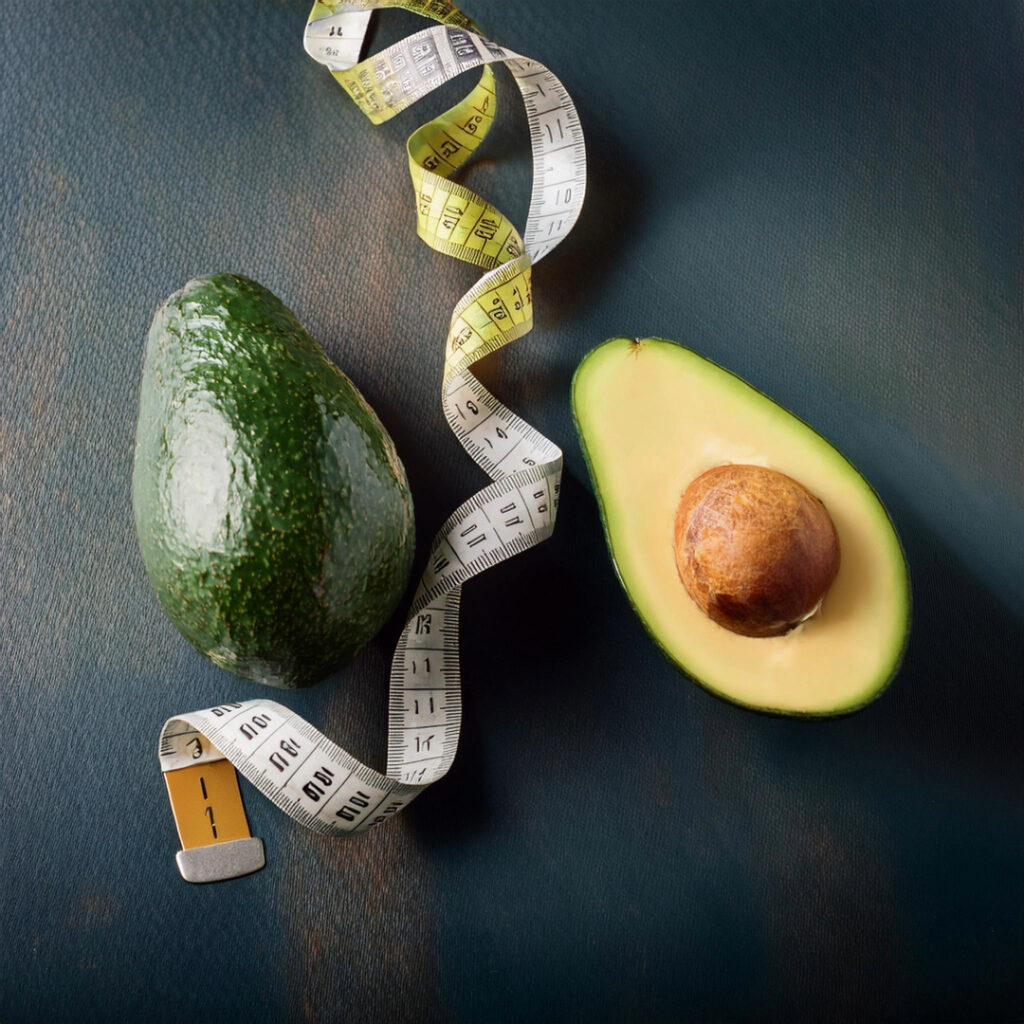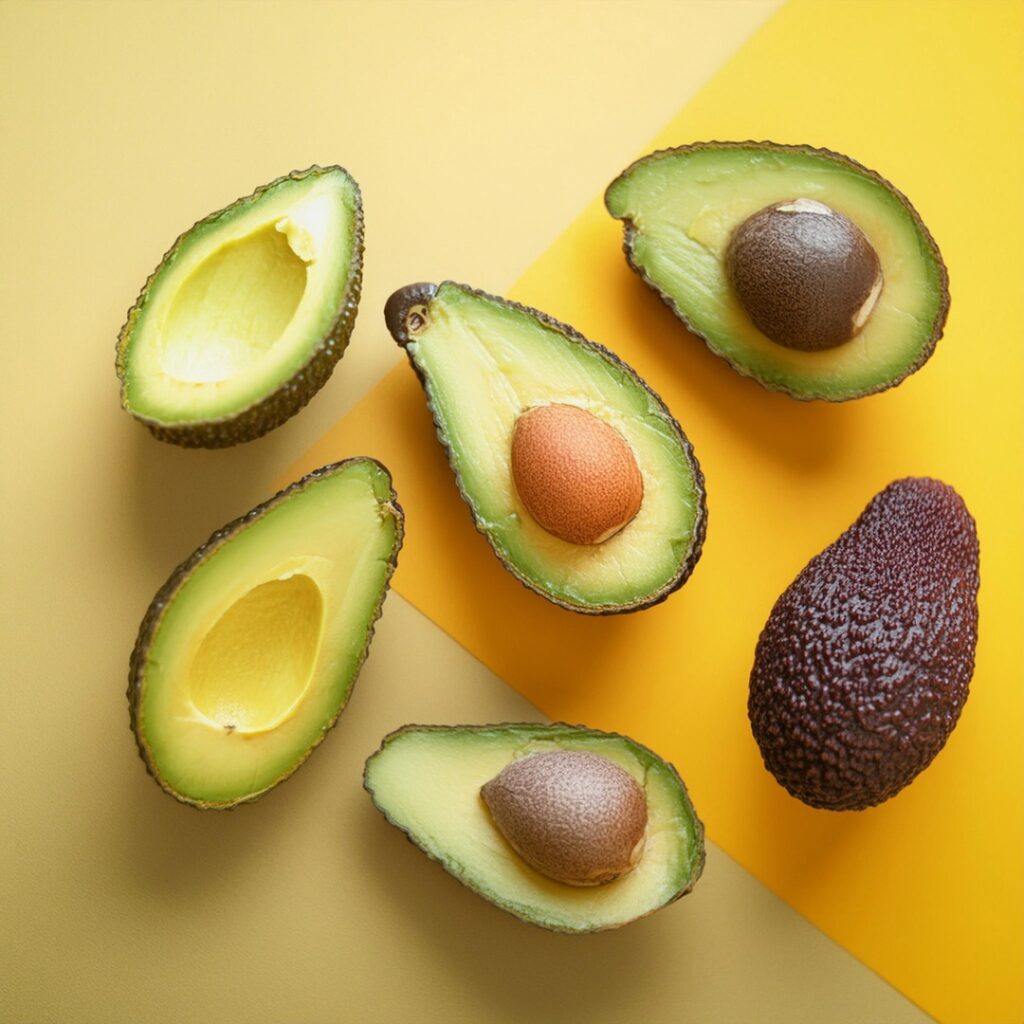In the world of health and fitness, weight loss is a major goal for many. When it comes to diet, avocados are often hailed as a superfood, thanks to their impressive nutritional profile. But how does avocado consumption fit into a weight loss plan? Is it a myth or reality that avocados can help you shed pounds? In this post, we’ll dive into the relationship between avocados, weight loss, and overall health, and explore whether this creamy, delicious fruit can truly support your weight loss journey.
1. The Nutritional Powerhouse: Avocado Overview
Before we can understand how avocados impact weight loss, we need to look at their nutritional content. A single avocado is packed with essential nutrients, including:
- Healthy Fats: The majority of the fats in avocados are monounsaturated fats, which are heart-healthy and have been shown to promote satiety.
- Dietary Fiber: Avocados contain about 10 grams of fiber per fruit, which is about 40% of the recommended daily intake for adults.
- Vitamins and Minerals: Avocados are rich in potassium, folate, vitamin K, vitamin C, and various B vitamins.
- Low Carbohydrates: Avocados are low in carbohydrates, making them a popular choice for low-carb and keto diets.
These characteristics make avocados a highly nutritious option, but how do they influence weight loss specifically?
2. Can Avocados Aid in Weight Loss?
2.1. Satiety and Reduced Calorie Intake
One of the primary ways that avocados can support weight loss is by promoting feelings of fullness or satiety. Satiety is crucial for weight loss because it helps reduce the likelihood of overeating.
- High in Fiber: Fiber slows digestion, which helps you feel full for longer periods. Studies show that individuals who consume fiber-rich diets are less likely to overeat and more likely to maintain a healthy weight.
- Healthy Fats: The monounsaturated fats in avocados also promote satiety. Unlike low-fat diets, which can leave you feeling unsatisfied, incorporating healthy fats into your meals can help curb hunger and reduce overall calorie intake.
2.2. Blood Sugar Regulation
Regulating blood sugar levels is essential for weight management. When blood sugar levels spike, insulin levels rise, and excess sugar is stored as fat. Avocados help prevent these spikes.
- Low Glycemic Index: Avocados have a low glycemic index (GI), meaning they don’t cause significant spikes in blood sugar levels after consumption.
- Healthy Fats and Fiber: The fats and fiber in avocados further stabilize blood sugar, helping to prevent cravings and energy crashes that lead to overeating.
2.3. Avocados and Metabolism
Some studies suggest that avocados may have a positive impact on metabolism. A faster metabolism helps the body burn more calories at rest, aiding in weight loss.
- Monounsaturated Fats and Fat Burning: Monounsaturated fats, like those found in avocados, have been linked to improved fat metabolism. This means that consuming these fats may help the body burn stored fat for energy.
- Nutrient Absorption: Avocados also improve the absorption of fat-soluble nutrients (such as vitamins A, D, E, and K), which are essential for overall health and may indirectly support weight loss by ensuring that your body is functioning optimally.
3. Avocado Consumption and Specific Diets
3.1. Avocados and Low-Carb Diets
Low-carbohydrate diets, such as the ketogenic diet, have gained popularity for their potential to accelerate weight loss. Avocados are a perfect fit for these diets because they are low in carbs but high in fats and fiber.
- Keto Diet: On a keto diet, the goal is to enter ketosis, where the body burns fat for fuel instead of carbohydrates. Avocados are an ideal food because they provide the necessary fats without spiking blood sugar levels.
- Paleo Diet: Avocados are also compatible with the paleo diet, which focuses on whole, unprocessed foods. Their high nutrient density makes them a valuable addition to this weight-loss-friendly diet.
3.2. Avocados in Plant-Based Diets
Plant-based diets have been shown to support weight loss due to their focus on whole foods and reduced calorie intake. Avocados play a significant role in these diets by providing healthy fats that might be lacking in other plant-based foods.
- Vegan and Vegetarian Diets: Avocados are a rich source of fats for those on vegan or vegetarian diets. Including them in meals ensures that individuals are getting enough calories and nutrients without resorting to processed foods.
- Mediterranean Diet: The Mediterranean diet, often associated with weight management and heart health, encourages the consumption of monounsaturated fats. Avocados fit perfectly into this diet, which focuses on whole grains, vegetables, and healthy fats.
4. Avocados vs. Other Foods for Weight Loss
4.1. Avocados vs. Low-Fat Foods
For many years, low-fat foods were considered essential for weight loss. However, new research shows that low-fat diets may not be as effective as once thought. In fact, healthy fats, like those found in avocados, can be more beneficial for weight loss than low-fat alternatives.
- Sustainability: Low-fat diets can often leave individuals feeling unsatisfied and hungry, which leads to overeating. In contrast, the healthy fats in avocados help to curb hunger and reduce the urge to snack between meals.
- Nutrient Density: Low-fat foods are often processed and lack important nutrients. Avocados, on the other hand, are packed with vitamins, minerals, and fiber that support overall health and weight loss.
4.2. Avocados vs. Other High-Fat Foods
Avocados are often compared to other high-fat foods like nuts, seeds, and oils. While these foods are also healthy, avocados offer some unique benefits.
- Fiber Content: Unlike oils, which contain no fiber, avocados are rich in both healthy fats and fiber, making them more satiating.
- Nutrient Profile: Avocados contain more potassium than bananas and are also rich in antioxidants, making them a more nutrient-dense choice compared to some other high-fat foods.
5. Potential Downsides of Avocados in a Weight Loss Diet
While avocados have many benefits, there are a few things to consider when incorporating them into a weight-loss diet.
5.1. Calorie Content
One common concern with avocados is their calorie content. A single avocado contains around 234 calories, which can add up quickly if you’re not mindful of portion sizes.
- Portion Control: While avocados can promote satiety, eating too much can still lead to excess calorie consumption. A good portion size is about one-third to one-half of an avocado per meal.
- Balanced Meals: It’s important to pair avocados with other low-calorie, nutrient-dense foods like leafy greens, lean proteins, and whole grains to create a balanced, weight-loss-friendly meal.
5.2. Individual Tolerance
Though rare, some people may experience digestive discomfort when consuming large amounts of avocado due to its high fat content. If you notice bloating or other digestive issues, consider reducing your portion size.
6. How to Incorporate Avocados into a Weight Loss Diet
6.1. Avocado Recipes for Weight Loss
There are countless ways to enjoy avocados as part of a weight-loss diet. Here are a few ideas:
- Avocado Smoothie: Blend half an avocado with spinach, almond milk, and a scoop of protein powder for a satisfying, low-calorie breakfast.
- Avocado Salad: Toss avocado with mixed greens, cherry tomatoes, and grilled chicken for a fiber-packed, nutrient-dense lunch.
- Avocado Toast: Spread mashed avocado on whole-grain toast and top with a poached egg for a balanced breakfast or snack.
6.2. Using Avocado as a Healthy Swap
Avocados can be used to replace less healthy ingredients in your diet. Try these healthy swaps:
- Avocado Instead of Mayo: Use mashed avocado as a spread on sandwiches or in wraps instead of mayonnaise, reducing the unhealthy fats and calories.
- Avocado in Baking: Replace butter with avocado in baking recipes for a healthier, nutrient-rich alternative.
7. The Bottom Line: Myth or Reality?
So, is the idea that avocados support weight loss a myth or reality? The answer lies in how they are consumed. Avocados can indeed be a part of a healthy, weight-loss-friendly diet when eaten in moderation and combined with other nutrient-dense foods. Their high fiber and healthy fat content help promote satiety, regulate blood sugar, and support metabolism, all of which contribute to weight management. However, portion control is key, as avocados are calorie-dense.
If you’re looking for a nutrient-packed, versatile food to support your weight loss journey, avocados are an excellent choice. Whether you’re on a low-carb diet, plant-based diet, or simply trying to eat healthier, avocados can provide essential nutrients that support your overall health while helping you reach your weight loss goals.
References
- Slavin, J. L. (2013). “Dietary fiber and body weight.” Nutrition, 29(1), 27-32.
- Guyenet, S. J., & Schwartz, M. W. (2012). “Clinical review: Regulation of food intake, energy balance, and body fat mass: Implications for the pathogenesis and treatment of obesity.” Journal of Clinical Endocrinology & Metabolism, 97(3), 745-755.
- Abete, I., et al. (2010). “Comparison of weight loss diets with different macronutrient compositions.” Nutrition & Metabolism, 7(1), 65.



Pingback: How Avocados Help with Weight Loss - clubavo.com